Space
-
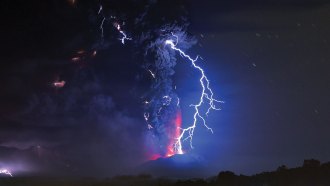 Earth
EarthHere are some big-if-true scientific claims that made headlines in 2023
Hominid cannibalism, “dark stars,” the secrets of Earth’s core and more tantalizing findings will require more evidence before scientists can confirm them as fact.
-
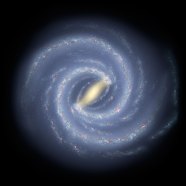 Astronomy
AstronomyA bar of stars at the center of the Milky Way looks surprisingly young
The ages and locations of metal-rich stars in the galaxy suggest the Milky Way’s central bar finished forming just a few billion years ago.
-
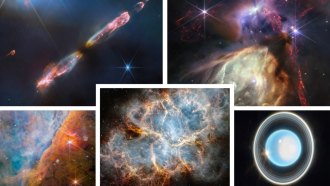 Space
SpaceThe James Webb telescope took some stunning images in 2023
Star nurseries. Planets. Supernova remnants. Here’s a look at some of this year’s stellar JWST images. And the mission is still just getting started.
-
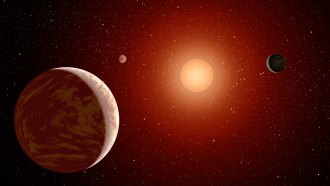 Astronomy
AstronomyHow tiny red stars can test ideas about the origin of life
A survey of ultracool dwarf stars finds they don’t emit enough UV light to kick-start life, but they could reveal other ways for life to get going.
-
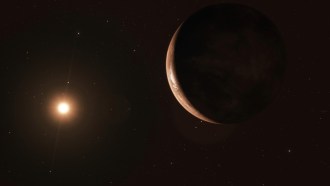 Astronomy
Astronomy50 years ago, astronomers challenged claims that Barnard’s star has a planet
Astronomers have been searching for planets around the sun’s close neighbor for decades.
-
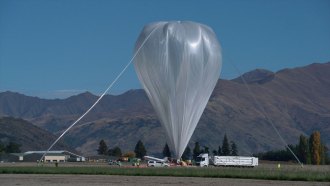 Space
SpaceA telescope dropped dark matter data from the edge of space. Here’s why
Last May, NASA’s Super Pressure Balloon Imaging Telescope crash-landed in rural Argentina. Scientists scrambled to recover the dark matter data aboard.
By Nikk Ogasa -
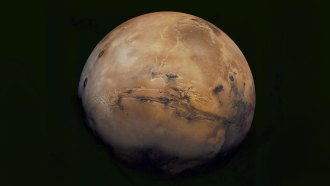 Planetary Science
Planetary ScienceGiant polygon rock patterns may be buried deep below Mars’ surface
A Chinese rover used radar to reveal long-buried terrain that might hint that Mars’ equator was once much colder and wetter.
By Elise Cutts -
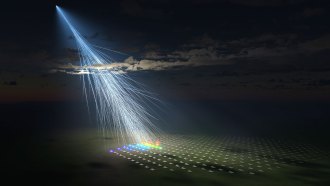 Astronomy
AstronomyA rare, extremely energetic cosmic ray has mysterious origins
In 1991, physicists spotted a cosmic ray with so much energy it warranted an ‘OMG.’ Now that energetic particle has a new companion.
-
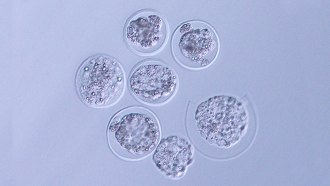 Animals
AnimalsThe first embryos from a mammal have now been grown in space
Mouse embryos in space can develop into clusters of cells called blastocysts. The result is a step toward understanding how human embryos will fare.
-
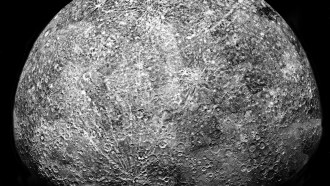 Planetary Science
Planetary Science50 years ago, the first probe to visit Mercury launched
In the 1970s, NASA’s Mariner 10 became the first spacecraft to visit Mercury. Only one other probe has made the journey and another one is on its way.
-
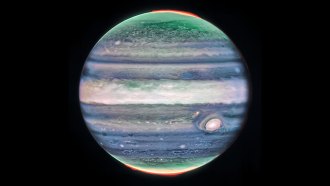 Planetary Science
Planetary ScienceJWST spotted a new speedy jet stream in Jupiter’s atmosphere
Seen in images from the James Webb Space Telescope, the high-altitude feature may help untangle the inner workings of the giant planet’s atmosphere.
-
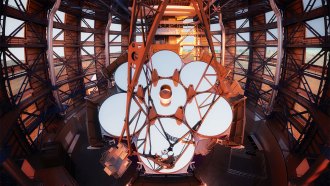 Space
SpaceHow giant mirrors are made for what will be the world’s largest telescope
The Giant Magellan Telescope is slated to probe the cosmos for Earthlike worlds and atmospheric signatures of potential extraterrestrial life.
By Nikk Ogasa